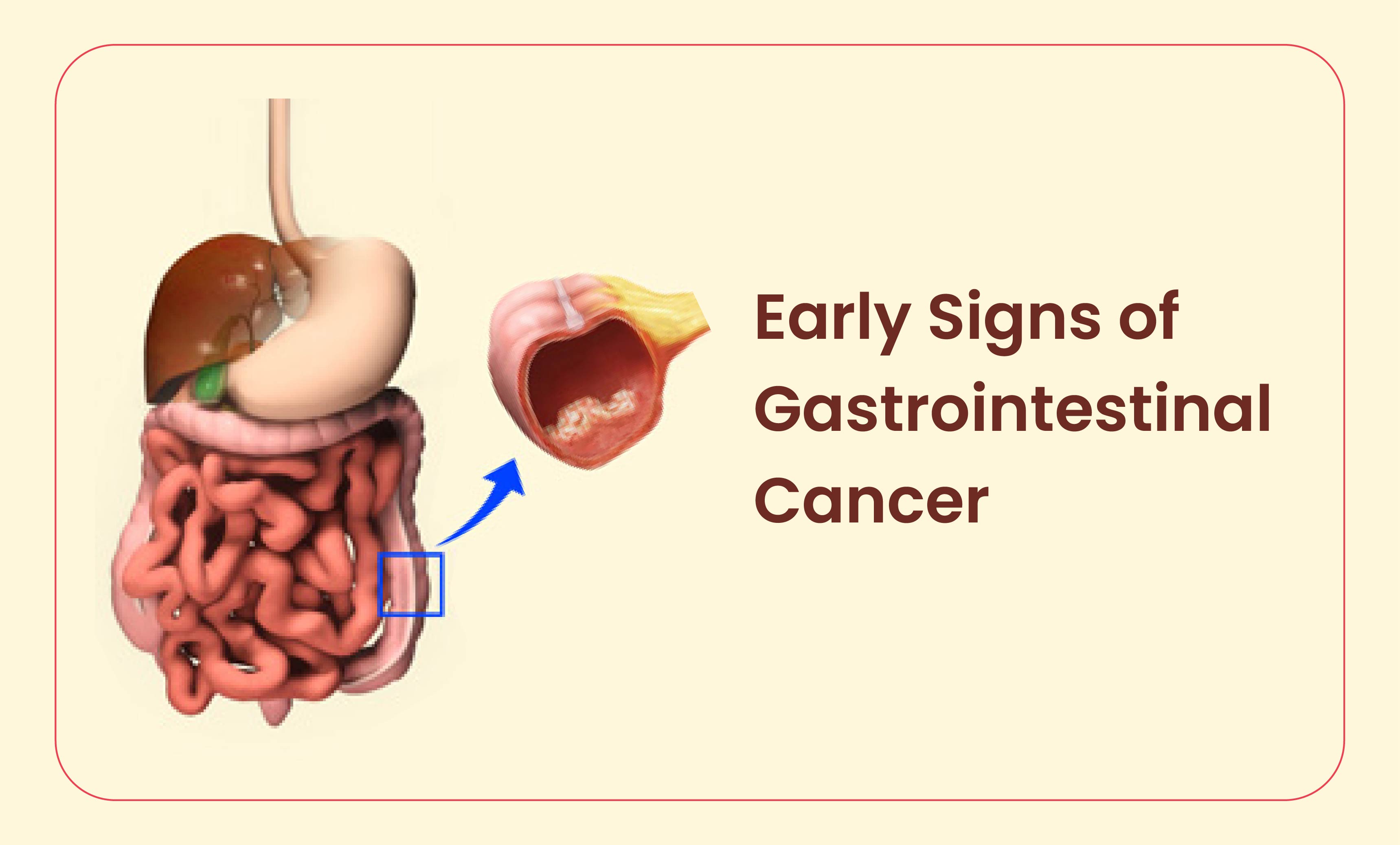
Introduction to Gastrointestinal Cancer:
Gastrointestinal cancer is the term used for cancers of the digestive system. This includes cancers of the esophagus, stomach, liver, pancreas, small intestine, colon, rectum, and anus. Early diagnosis of gastrointestinal cancer greatly enhances treatment success.
Ten Early Signs of Gastrointestinal Cancer:
- Unexplained Weight Loss: Sudden and unexplained weight loss could be one of the early signs of gastrointestinal cancer. This happens because the cancerous cells use a lot of the body's energy supply or release substances that change the way the body converts food into energy. If you notice significant weight loss without changes to your diet or exercise routine, it’s important to consult a healthcare professional.
- Persistent Abdominal Pain or Discomfort: Persistent abdominal pain or stomach discomfort is another sign that could point to cancer of the GI tract. This pain may range from mild to severe and can be either constantly present or come and go. It is crucial to pay attention to any ongoing abdominal pain and seek medical advice if it persists.
- Change in Bowel Habits: You may experience changes in your bowel habits, which may manifest as diarrhea, constipation, or a change in stool consistency. These changes may last for longer than a couple of days and do not get relieved by over-the-counter treatments. Chronic changes in bowel habits warrant a visit to the doctor for further evaluation
- Blood in Stool: The presence of blood in the stool may be one of the major warning signs of gastrointestinal cancer. The blood may appear bright red or even very dark in color, which may mean that bleeding has occurred somewhere along the digestive tract. If you notice blood in your stool, it’s important to seek medical attention immediately.
- Difficulty Swallowing: If you are having difficulty swallowing, this might be an indication of esophageal or stomach cancer. The symptom can start with food stuck in the throat or chest. It then can even become painful when swallowing and develop into an inability to swallow. Dysphagia should not be ignored and should be checked by a healthcare professional
- Loss of Appetite: A suddenly reduced appetite, or the feeling of satiety after having only a few bites, might represent an early symptom of gastrointestinal cancer. This is because the tumor exerts some pressure around the stomach or other parts responsible for digestion. A persistent loss of appetite should be discussed with a doctor.
- Nausea and Vomiting: Persistent nausea and vomiting could be a sign of gastrointestinal cancer. This can be a result of the cancer blocking part of the digestive tract, increasing the build-up of food and digestive juices. If you experience ongoing nausea and vomiting, it’s important to get evaluated by a healthcare provider.
- Fatigue: Unexplained tiredness or weakness could be symptoms of gastrointestinal cancer though nonspecific. It's because the body uses some energy to fight off the cancer or by anemia caused by internal bleeding. Persistent fatigue should prompt a visit to the doctor to explore the underlying cause.
- Jaundice: This describes the typical yellow discoloration of the skin and the whites of the eyes and can sometimes be associated with cancer of the liver or pancreas. This occurs due to the action of cancer that hinders the flow of bile through the liver to the intestines in a regular way. Jaundice is a serious symptom that requires immediate medical attention.
- Bloating or Feeling Full: If one experiences bloating or a feeling of being full in the abdomen, this could be an early symptom of gastrointestinal cancer. This can occur when a tumor causes some type of blockage or fluid accumulation in the abdomen. Persistent bloating should be evaluated by a healthcare professional.
The Importance of Regular Checkups:
Regular checkups and screenings are essential for early detection. Colonoscopy, endoscopy, and other diagnostic tests can help identify potential problems before they become life-threatening.
Early detection of gastrointestinal cancer can significantly improve treatment outcomes. By being aware of these ten early signs, you can take proactive steps to seek medical advice and potentially catch the disease in its early stages. Regular check-ups and being mindful of your body's signals can play a vital role in maintaining your health.
Dr. Viraj Lavingia is a distinguished specialist in gastrointestinal cancer, renowned for his expertise in diagnosing and treating cancers affecting the digestive system, including esophageal, stomach, pancreatic, liver, and colorectal cancers. With extensive training and experience in oncology, Dr. Lavingia employs advanced diagnostic techniques and personalized treatment plans to address complex cases. His approach combines cutting-edge therapies with compassionate care, aiming to improve outcomes and quality of life for his patients. As a leader in the field, he is involved in ongoing research to enhance treatment modalities and contribute to the advancement of gastrointestinal oncology